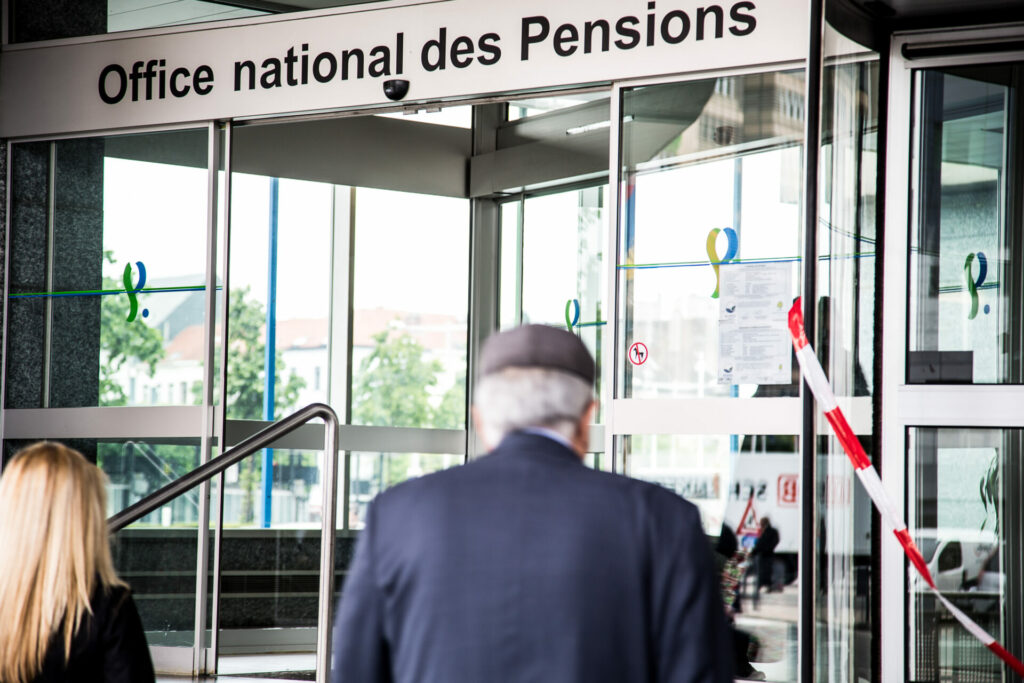After a night of negotiating, Belgium's core cabinet of ministers has reached a long-awaited agreement on a package of measures to improve the pension system's financial sustainability.
The reform was first announced earlier this year by Pensions Minister Karine Lalieux but has only now been approved after lengthy discussions. Prime Minister Alexander De Croo said the deal would help "better control the cost of ageing", which has risen 0.4% under this government. The reform aims to correct this increase.
"The agreement on the pension reform is a balanced agreement, which meets the priorities of the coalition and the expectations on financial and social sustainability," Lalieux stated on Twitter early on Monday morning.
The reform was desperately needed as Belgium is currently unable to access €2 billion in EU funding because it has not sufficiently reformed its pension system. All measures combined should reduce Belgium’s ageing cost by 0.5% of GDP by 2070.
What changes?
Though the reform aims to ensure that Belgium's pension system is sustainable (and ultimately costs less), this will not mean lowering the pensions of all citizens. In fact, the reform will increase the minimum pension in an effort to make the pension system overall more equitable.
This will, in part, require a larger contribution from employees and self-employed people who accumulate the very highest second-pension pillar. This revenue will help "top up" the lowest pensions and should iron out existing disparities, notably making the system fairer for women who take maternity leave.
Furthermore, the reform will double Belgium's "Wijninckx" contribution, which is the pension payment made by employers and companies. This will be increased from 3 to 6%. After discussion with employers' representatives, this measure won't be introduced until 1 January 2028.
Ministers also agreed to restore the pension bonus, which had previously been dropped by the Michel government. This means that anyone working beyond the legal age of retirement will benefit from a bonus that increases progressively over three years, up to a maximum of €22,645. This tax-free sum will be paid in one instalment when the employee does begin their retirement. It will be introduced in January 2025.
Belgium's civil servants currently have their pensions adjusted in line with the evolution of present salaries. This quirk of the Belgian public service means that the State must pay twice when it increases the salary of regional and national staff – not only must it pay present employees more, it also must increase the pension of retired staff who held that position.
In order to reduce the cost of this mechanism, pension adjustments for civil servants will be capped at 0.3%. This is estimated to save around €3 billion each year.
How the deal went down
Green Deputy Prime Minister Petra De Sutter welcomed the reform, celebrating the efforts it makes to protect women's rights. This was in particular reference to the inclusion of parental leave, informal care leave or a period to care for a sick family member in the number of worked years.
The core cabinet also decided to increase low and middle wages via the so-called work bonus, of which a similar system is already in place in Flanders to make working more attractive than receiving benefits.
Related News
- Losing social tariff and more social benefits: What changes in Belgium on 1 July?
- 'Significant deterioration': Belgian economy faces bleak future as budget soars
But trade unions voiced disappointment about the way the agreement was concluded, unhappy that they were not consulted about the final reform before it was announced: "This defies all imagination. It is incomprehensible and unacceptable," said socialist trade union ACOD president Chris Reniers.
The unions are mainly in disagreement with the changes to civil servants' pensions. "For retired civil servants, welfare stability will at least partly disappear," Ilse Heylen of ACV Public Services said. Both Renier and Heylen would have preferred further consultation on the measures.
Progress was reportedly also made in talks on tax reform but there is currently only a deal on how the burden will be reduced, not on how to finance the tax shift.

